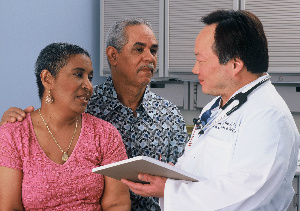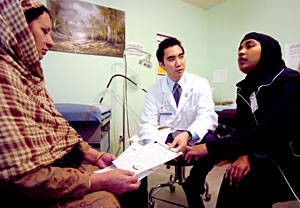Patient recruitment is one of the most important components of successful clinical trials. According to studies focused on identifying the factors influencing enrollment, two of the most common patient recruitment challenges are consistently inadequate patient education and poor communication with patients and their families. So how do you avoid these challenges when you take your trials global?
Global Clinical Trials Come With Their Own Patient Recruitment Challenges
Pharmaceutical and medical device innovation usually depends on the completion of a successful clinical trial. Most biopharmacutical companies or medical device manufacturers can agree that some of the major roadblocks to a successful clinical trial involve patient recruitment challenges. Specifically making sure potential subjects are well informed about the benefits of the trial.
Unfortunately, that’s not all…
As trials continue to grow internationally, patient recruitment challenges will become even more complex. Now, informing the potential participant about the trial is not the only goal – you must also be sure that he or she understands it (literally) in his or her native language, and that it makes sense within the cultural context of your target population.
In this post, we’ll focus on three key global patient recruitment challenges researchers can anticipate when promoting and explaining global trials, and sum everything up with 7 key tips for preparing for international clinical trials.
Patient Recruitment Challenge 1: Patient Misconceptions

Common misconceptions regarding clinical trial participation range from fear of negative side effects to concern about being placed in the placebo group. As a result, potential subjects often consider enrollment in a clinical trial a last resort.
It is crucial to educate subjects about the clear benefits of choosing your trial (as well as the other options available to the patient). This means providing clear answers to questions concerning expected outcomes in simple language so people unfamiliar with the highly technical aspects of your trial can still understand.
For international recruitment, this will need to be done in the target subject’s native language – discussed in more detail in recruitment challenge three.
Patient Recruitment Challenge 2: Cultural Misconceptions
Perhaps one of the most difficult patient recruitment challenges is that of cultural misconception. Western medicine is vastly different from medicine practices around the world. If you plan on taking your clinical trial of a new drug to a country where your target population usually relies on herbal and natural remedies for example, you may run into resistance for recruitment.
Knowing how the culture of the country you are looking to test in views medicine is key to adapting your message to potential subjects. It will be much harder to recruit if people view your trial as out of the ordinary, or against many of their medical beliefs or systems. This same idea is applicable to trials that aren’t being conducted abroad, but are recruiting minority populations from various cultures.
What type of cultural resistance might you anticipate?
The Patients Usually Rely On Herbal Remedies

Even acknowledging the use of herbal and natural remedies, and their validity in the culture of your patients, can help build trust between patient populations and researchers.
The Patient’s Culture Has No Concept Of The Disease Your Trial Treats
Usually, patient recruitment challenges revolve around explaining the trial to potential patients – not necessarily the disease it is meant to treat. Imagine that you were testing a drug or device that had a profound impact on cancer. Now imagine the population you would like to enroll in clinical trials for this drug or device don’t understand the concept of cancer.
How would you explain the purpose of your treatment?
Once again, Western medicine can differ greatly from other medicinal practices, even when it comes to awareness of certain diseases. It is not unheard of that an international patient group will be unaware of a disease that seems to be commonly discussed in Western cultures. Knowing beforehand whether or not your target population even has a word for the illness your trial covers is essential.
If you find they don’t, but you still are planning to conduct trials in that country, you must be ready to research what (if any) concept is currently prescribed to the illness, how it is viewed, how it is treated, and how you can fit your trial into that context.
The Trial Will Burden The Patients’ Family
The decision to participate in your trial may be further influenced by how it impacts the patient’s family. Patients commonly choose the treatment that they consider to be less of a burden rather than the best option.
In many cultures, family plays a huge role in medical decisions. It could even be that the final decision is made by the family. The medical community must overcome communication barriers in order to better define these issues.
This means including families in on the discussion when possible, and being respectful of the role family plays in different cultures.
Patients Have Limited Health Knowledge

Moreover, it may seem overwhelming to patients to not only consider the treatment but to consider it in the context of a human anatomy they were not aware of. Doing plenty of cultural research before beginning a clinical trial is important in instances like this.
Knowing how patients learn about the human body before describing the treatment to them can help you prepare with visual aids and different descriptive language to help them understand how your trial will work with their anatomy.
The Patients Don’t Fully Understand Treating Chronic Diseases
While patient recruitment challenges are generally experienced during the ICF process, there are still cultural barriers that occur during a trial. One example being that it is not always understood that medication must be taken for the prescribed amount of time – even if symptoms abate.
If a patient misunderstands the need to continuously take a drug being tested, it could result in patient confusion, relapse, and inaccurate data on the researchers end. This could also be true for devices being used to treat ailments – if patients don’t understand that they need to continuously use the device in order to test the treatment, they may stop using it if their symptoms lessen.
As such, during the informed consent process, and throughout the trial, it is essential to explain exactly how subjects participating in the study should be using the experimental drug or device. If they should not stop using it until the end of the trial, even if their symptoms lessen, make sure that is understood.
Patients Don’t Usually Address Doctors As Openly Due To Perceived Authority Status

This could create problems if your patient population comes from a culture where doctors are viewed as authority figures, and as such, individuals feel less willing to speak openly with them. When interviewing patients for international clinical trials, it is important to emphasize the fact that their open, honest feedback to doctors and authority figures is crucial to not only the success of the trial but their own health.
Are these the only global patient recruitment challenges CROs and researchers can anticipate?
Naturally, there are more potential barriers than those mentioned above. While you can certainly do research and work to ensure identified challenges are dealt with beforehand, you may have to continue to adapt throughout the trial.
Many of the above scenarios are not new to medical professionals and are experienced daily by healthcare providers working with LEP populations. Their adaptation to patient recruitment environments is absolutely necessary. A patient’s views on medical treatments must always be taken into account in order to ensure clear communication and understanding.
In the case of clinical trials, addressing linguistic and cultural barriers also help with patient enrollment. Patients who view researchers less as foreigners, and more as people who understand their medical culture, may be more inclined to trust and accept admission to a trial.
Patient Recruitment Challenge 3: Language & Communication

If patients don’t understand the process you could run into the issue of their acceptance into the study not being viewed as legal informed consent.
Proper communication also allows for patient’s questions to be properly addressed, increasing the chances that he or she will understand the trial and its benefits.
Any study that is aimed at a patient population whose native language is not spoken by the trial administrators or researchers must employ localization and translation services experts for materials. This is not only necessary for successful clinical trial management, but it is also required by most ethics committees.
ICF translation for example, must be done in accordance with the FDA and IRB regulations to ensure that subjects enrolled in your trial are done so knowingly and lawfully.
A professional interpreter is often required as well for patient informed consent interviews. Having an experienced, medical interpreter present will allow the patient to speak comfortably in his or her native language, and enable them to ask any questions or voice any concerns.
This also alleviates the risk of non-binding consent.
Now that we’ve addressed some of the major patient recruitment challenges for international clinical trials, how can you work to increase the education and communication surrounding your trial?
Using Social Media & Online Communities To Address Patient Recruitment Challenges

It is also extremely useful to translate such information, thereby overcoming online linguistic barriers. More traditional methods of communication are also helpful, such as advertisements, and still, provide an important means for educating patients.
For trials in which the recruitment of patients from minority groups is required, developing relationships within the community and providing educational programs are of particular importance.
One of the most effective community outreach methods is often through the help of a community leader who is bilingual and understands cultural attitudes. This individual can help educate their community about the benefits of clinical trial participation, while at the same time clarifying any misconceptions.
Tips for Successful Patient Recruitment
In summary, a look at the factors that affect subject recruitment confirms that communication and education (both about traditional medical views and the aspects of a proposed trial) are essential in overcoming barriers. The following recommendations are aimed at helping healthcare professionals overcome global patient recruitment challenges:
- Provide all treatment options to patients, including eligible clinical trials.
- Educate patients regarding the benefits of clinical trial participation, and clarify any linguistic or cultural misconceptions with the help of an interpreter or community leader.
- Anticipate cultural barriers to your treatment beforehand, and adapt your recruitment to address patient concerns.
- Ensure all approved clinical documents receive certified, professional translation and localization for the patients’ native languages.
- Ensure trained linguists are on hand in the event no translated document is available for a patient interview, and to ensure comfortable communication between researchers and patients.
- Provide community outreach programs for the target patient population, along with translated online materials.
- Emphasize the role of all healthcare professionals in recruitment, e.g. medical specialists, nurses, social workers, and primary care providers.
Is There A Common Patient Recruitment Challenge We Missed When It Comes To International Trials? Let Us Know In The Comments!
Learn more about our Life Sciences Translation and our Clinical Research Translation Services!
About Language Connections:
Language Connections is one of the top language service companies in the US. Over the last 30 years, we’ve focused on providing the best business translation services, interpreting services, as well as interpreter training and customized language training programs. In addition to top-tier corporate language training, we offer certified corporate interpreters and professional business translation services in 200+ languages. Our network includes linguists with backgrounds in all major industries. They’re ready to meet your needs, whether they’re for technical translation services, legal translation, government translation services, international development translation services, education translation services, life sciences translation, or something else. Reach out to us today for a free quote on our cost-efficient and timely translation services, interpreters, or other linguistic services.
Language Connections Inc.
2001 Beacon Street, Suite 105,
Boston, MA 02135
Phone: +1-617-731-3510
Email: service@languageconnections.com


